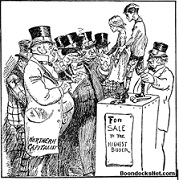ANSWER THE FOLLOWING QUESTIONS :
Question. 1 Explain how Japan took control of Manchuria.
Question. 2 Imagine that you are a Japanese person watching events unfold in the 1850s and 1860s. How might you react? Do you see alternatives to the opening of your country to foreign trade? Do you agree that in order to compete with the Western powers, your nation must begin to behave like the Western powers? Explain.
Question. 3 Write an essay on Revolution in China.
Question. 4 Write a short Essay on Modernization and Transformation of Japan.
MULTIPLE CHOICE:
1. Consider the following changes that occurred in the United States in the late 19th century:
- Increases in immigration
- Widespread industrialization
- Improvements in agricultural technology
What was one result of these developments during this time period?
a. The growth of large cities
b. The decline of labor unions
c. The spread of plantation agriculture
d. The construction of interstate highways
2. In 1770 James Hargreaves of England received a patent for his spinning jenny. Another Englishman, Samuel Crompton, combined the spinning jenny with a water frame. He called his new invention the spinning mule. The spinning jenny and spinning mule are examples of
a. Cultural changes
b. Socioeconomic changes
c. Technological advances
d. Communication advances
3. What is the meaning of the cartoon?

a. The children need food
b. The children need new clothes
c. Capitalists cared about child welfare
d. Children are being treated as property
4. Railroads brought goods and people to America's trade and manufacturing centers. Chicago grew as a meatpacking city. Philadelphia became a manufacturing center for steel and coal. New York grew as a thriving center for trade. Increased industrialization led to
a. Improved sanitation and housing
b. The elimination of the working class
c. Improvements in the lifestyle of the working class
d. An increase in the number of people working in manufacturing
5. Corporations had the important advantage of
a. Being run by an individual or family
b. Developing into monopolies
c. Reducing the financial risk for individual investors
d. Keeping prices high
6. Which argument supports the perception of big business leaders as "Captains of Industry"?
a. Industrialists support for technology benefited the economy
b. Monopolies forced small companies out of business
c. Consumers were harmed by inflated prices
d. Workers' wages rose as industrialists profited
7. In the late 1800s, workers tolerated poor wages because they
a. Thought that the government would protect them
b. Believed it had to get worse before it got better
c. Could be replaced easily by other workers
d. Were tricked by employers into taking dangerous jobs.
8. Which labor leader began the AFL?
a. Samuel Gompers
b. Terence Powderly
c. Eugene Debs
d. Uriah Smith Stephens
9. What was one result of the Haymarket Riot?
a. Steelworkers' wages increased
b. Public support for unions grew.
c. The AFL ceased to exist
d. Membership in the Knights of Labor declined
10. Labor unions formed as a way to help workers
a. Find better jobs
b. Learn more skilled trades
c. Improve their working conditions
d. Increase the hours children could work
11. How did federal government support employers during labor unrest?
a. Called on the Pinkertons to stop strikes
b. Denied unions recognition as legally protected groups
c. Imprisoned Eugene Debs and other labor leaders for life
d. Made company towns illegal
12. As part of the garment industry, adults and children worked in small, crowded rooms called sweatshops making new clothes. Their hours were long. Their pay was little. Often the rooms were dark. What advantage were sweatshops to the textile industry?
a. They eliminated textile factories
b. They kept the cost of production low
c. They employed only women and children
d. They helped families create their own small businesses
13. Industrialization affected the United Sates
a. Through the growth of urban cities
b. By encouraging westward movement
c. Through the growth of small family farms
d. By emigration from the United States to Europe
14. In his article The Gospel of Wealth, Andrew Carnegie stated, "The contrast between the palace of the millionaire and the cottage of the laborer with us to-day...is not to be deplored, but welcomed as highly beneficial. It is...essential for the progress of the race." Andrew Carnegie
a. Believed in equality
b. Promoted regulation of industry as a means to wealth
c. Felt a class system was essential
d. Believed that everyone should receive the same opportunities
15. Government attempted to regulate business
a. Through the Keating-Owen Act
b. Through the Sherman Antitrust Act
c. By calling for the establishment of monopolies
d. By forcing railroads to create a fair pricing structure